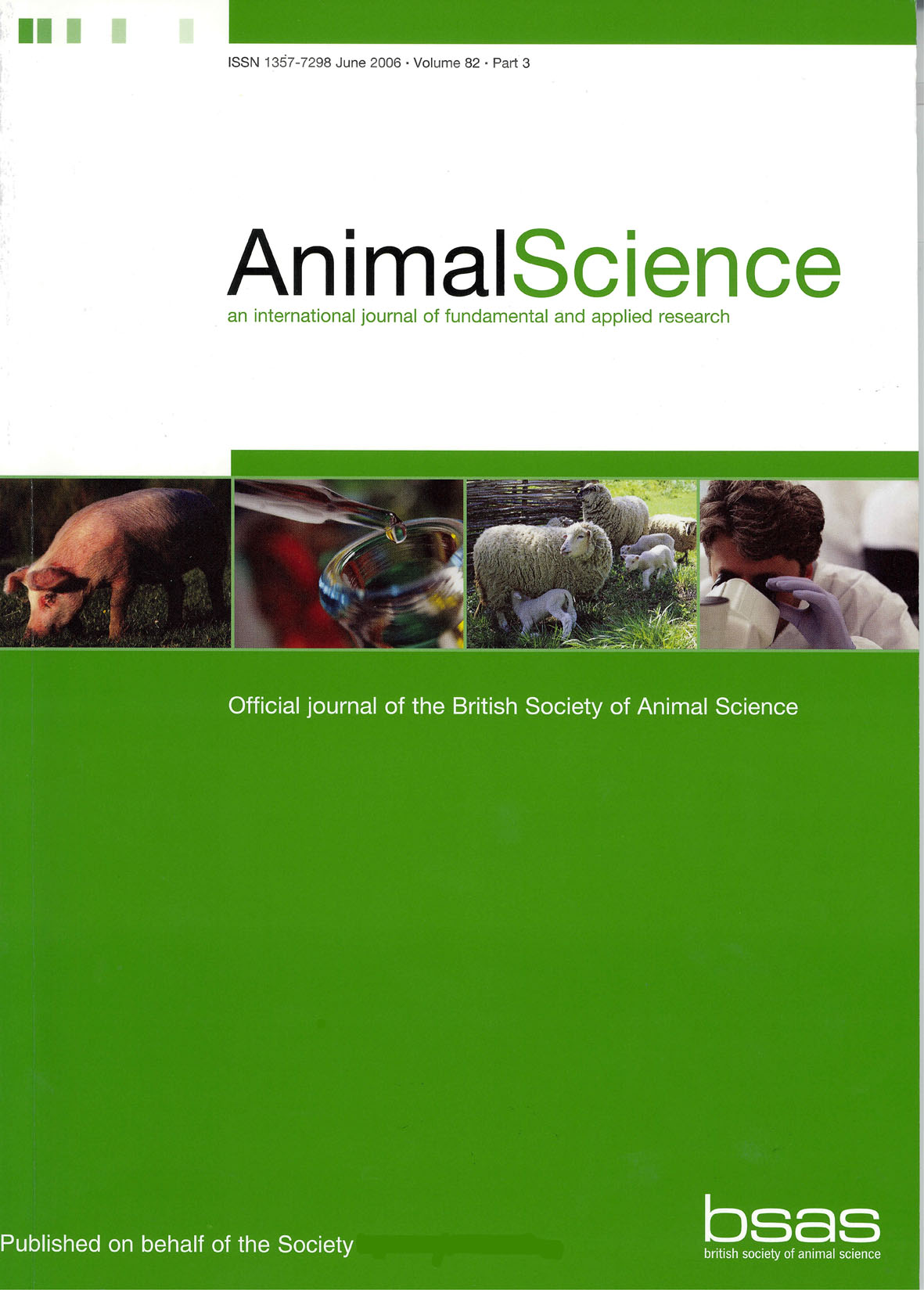Article contents
Influence of rumen ciliate protozoa on conversion of food and growth rate in early-weaned zebu calves
Published online by Cambridge University Press: 02 September 2010
Summary
The ruminal activity, daily live-weight gain and feed conversion efficiency of zebu calves inoculated with whole rumen contents from a mature cow were compared with those of calves maintained under the same conditions except that they were ciliate-free and isolated from other ruminants.
A thriving mixed population of ciliate protozoa became established in the rumen of calves two weeks after inoculation. Entodinium was the first genus to appear and was followed by Isotricha, Polyplastron, Ophryoscolex, Diplodinium and Dasytricha.
The ruminal volatile fatty acid and ammonia concentrations in the inoculated calves showed a pronounced rise above the values found in the uninoculated controls.
The inoculated calves grew faster and had a higher feed conversion efficiency than the uninoculated controls.
- Type
- Research Article
- Information
- Copyright
- Copyright © British Society of Animal Science 1970
References
REFERENCES
- 4
- Cited by


